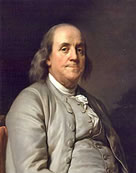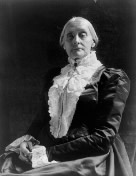I guess a small-town mayor is sort of like a “community organizer,” except that you have actual responsibilities.
Acceptance Speech – Sarah Palin, Republican Vice Presidential candidate – September 3, 2008
Community organizing is how ordinary people respond to out-of-touch politicians and their failed policies.
Response to Palin’s acceptance speech – David Plouffe
Campaign Manager, Obama/Biden, Democratic Presidential campaign
September 4, 2008
HOLD MY EARRINGS!!!! I don’t know about you, but I just did not dig what Republican Vice Presidential candidate Sarah Palin said about community organizers in her acceptance speech last night. Community organizers are the people bailing out the water hands on from the FEMA Katrina fiasco and any and all disasters natural or political. Community organizers make certain our democracy lives up to the meaning of its creed. Community organizers are organizing service people in community centers, faith communities, getting things done without haggling over their political backend. Community organizers respond to needs.
That’s why I felt compelled to set Gov. Palin straight with a Community Organizers Hall of Fame. Hope she stops by this site to check it out. All are welcome. I know I only have a few here. If you’d like to recommend a Community Organizer Hall of Famer, sign up on this blog and share. The list will be long I’m sure. I’ll try to accommodate as many as I can.

Benjamin Franklin (1706 – 1790) founded the first public library and the first organized volunteer fire department in the United States. Also a “founding father” if you haven’t heard.
 Susan B. Anthony (1820 – 1906) The 19th Amendment giving women the vote was the result of the work of Susan B. Anthony’s and other community organizing women and concerned men in the U.S. seeking civil and political rights for women. Sarah Palin should be grateful for the “responsibiltiies Anthony and her colleagues took on for her benefit.”
Susan B. Anthony (1820 – 1906) The 19th Amendment giving women the vote was the result of the work of Susan B. Anthony’s and other community organizing women and concerned men in the U.S. seeking civil and political rights for women. Sarah Palin should be grateful for the “responsibiltiies Anthony and her colleagues took on for her benefit.”
 Jane Addams (1860 – 1935) First woman to receive the Nobel Peace Prize in 1931. Founder with Ellen G. Starr of Hull House, a settlement house in Chicago to improve the conditions of people, primarily new Americans, living in the industrial district. Hull House was host to 2000 people each week.
Jane Addams (1860 – 1935) First woman to receive the Nobel Peace Prize in 1931. Founder with Ellen G. Starr of Hull House, a settlement house in Chicago to improve the conditions of people, primarily new Americans, living in the industrial district. Hull House was host to 2000 people each week.
 Martin Luther King, Jr. (1929 -1968) Minister, organizer, activist and a leader of the civil rights movement that resulted in the Civil Rights Act (1964) and Voting Rights Act (1965) signed into law by President Lydon B. Johnson. Youngest person to receive the Nobel Peace Prize.
Martin Luther King, Jr. (1929 -1968) Minister, organizer, activist and a leader of the civil rights movement that resulted in the Civil Rights Act (1964) and Voting Rights Act (1965) signed into law by President Lydon B. Johnson. Youngest person to receive the Nobel Peace Prize.
.
Ceasar Chavez (1927 – 1993) Mexican labor activist and leader of the United Farm Workers. Efforts improved laborers’ conditions for thousands of workers.
 Mary Harris “Mother” Jones (1837-1930) Fought for better working conditions for miners at the risk of her own life and attracted attention to the cause of abolishing child labor in 1903. She led a march of 100 children up to the doorstep of President Theodore Roosevelt’s Long Island home.
Mary Harris “Mother” Jones (1837-1930) Fought for better working conditions for miners at the risk of her own life and attracted attention to the cause of abolishing child labor in 1903. She led a march of 100 children up to the doorstep of President Theodore Roosevelt’s Long Island home.
 Ida B. Wells (1862 – 1931) As a journalist and owner of her own newspaper, Ida B. Wells launched an anti-lynching campaign that extended to abolitionists in the United Kingdom. Ida B. Wells and Jane Addams blocked the establishment of segregated schools in Chicago. She was a suffragist, founder of the National Association for the Advancement of Colored People (NAACP), and was the first African American woman to run for public office (Illinois State legistlator).
Ida B. Wells (1862 – 1931) As a journalist and owner of her own newspaper, Ida B. Wells launched an anti-lynching campaign that extended to abolitionists in the United Kingdom. Ida B. Wells and Jane Addams blocked the establishment of segregated schools in Chicago. She was a suffragist, founder of the National Association for the Advancement of Colored People (NAACP), and was the first African American woman to run for public office (Illinois State legistlator).